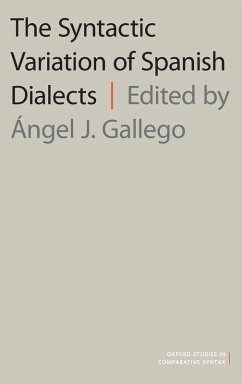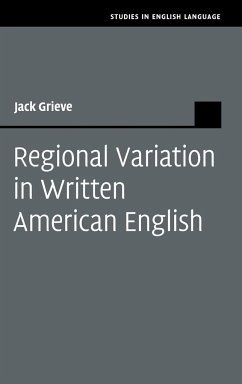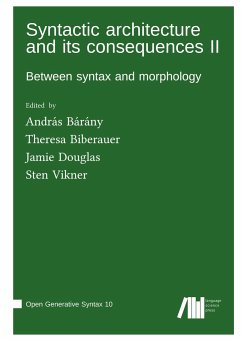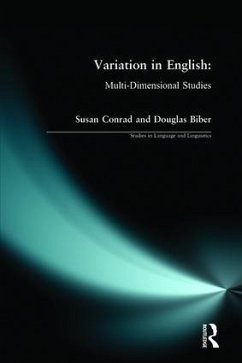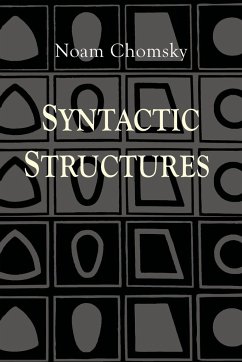
Micro-Syntactic Variation in North American English
Versandkostenfrei!
Versandfertig in 1-2 Wochen
56,99 €
inkl. MwSt.

PAYBACK Punkte
28 °P sammeln!
Comparative work on linguistic varieties that are overall very similar can help us determine where and how exactly grammatical systems differ from one another, and how they change over time. This book explores a range of data on unfamiliar constructions across regional and social dialects.
By comparing linguistic varieties that are quite similar overall, linguists can often determine where and how grammatical systems differ, and how they change over time. Micro-Syntactic Variation in North American English provides a systematic look at minimal differences in the syntax of varieties of English spoken in North America. The book makes available for the first time a range of data on unfamiliar constructions drawn from several regional and social dialects, data whose distribution and grammatical properties shed light on the varieties under examination and on the properties of English syntax more generally. The nine contributions collected in this volume fall under a number of overlapping topics: variation in the expression of negation and modality (the "so don't I" construction in eastern New England, negative auxiliary inversion in declaratives in African-American and southern white English, multiple modals in southern speech, the "needs washed" construction in the Pittsburgh area); pronouns and reflexives (transitive expletives in Appalachia, personal dative constructions in the Southern/Mountain states, long-distance reflexives in the Minnesota Iron Range); and the relation between linguistic variation and language change (the rise of "drama SO" among younger speakers, the difficulty in establishing which phenomena cluster together and should be explained by a single point of parametric variation). These chapters delve into the syntactic analysis of individual phenomena, and the editors' introduction and afterword contextualize the issues and explore their semantic, pragmatic, and sociolinguistic implications.



